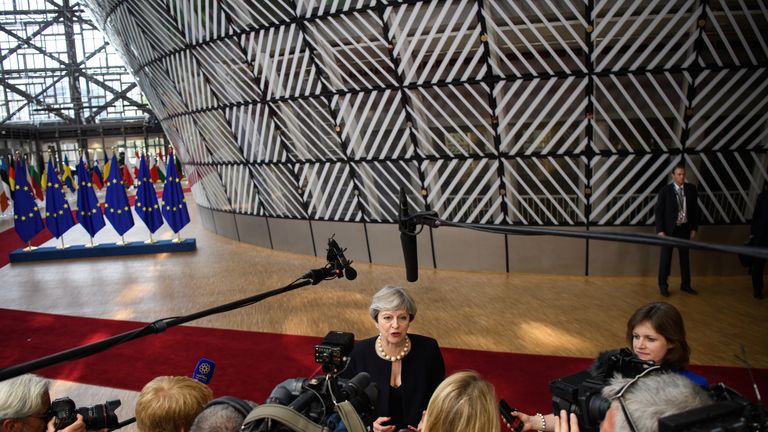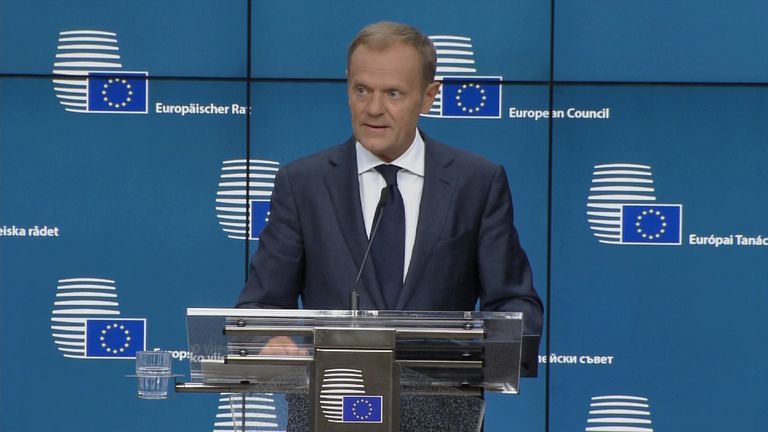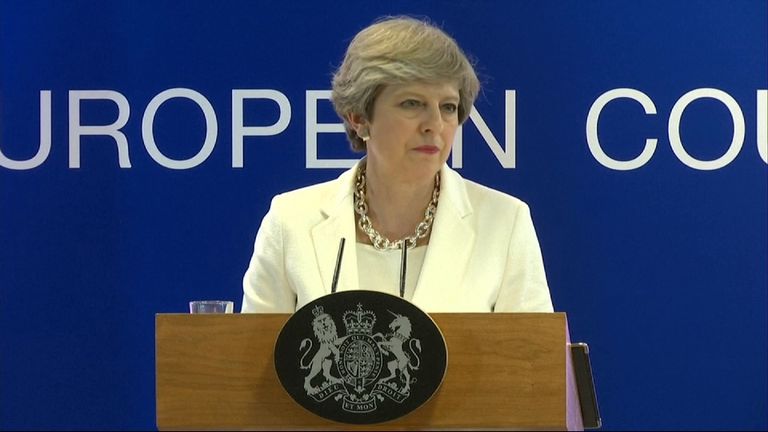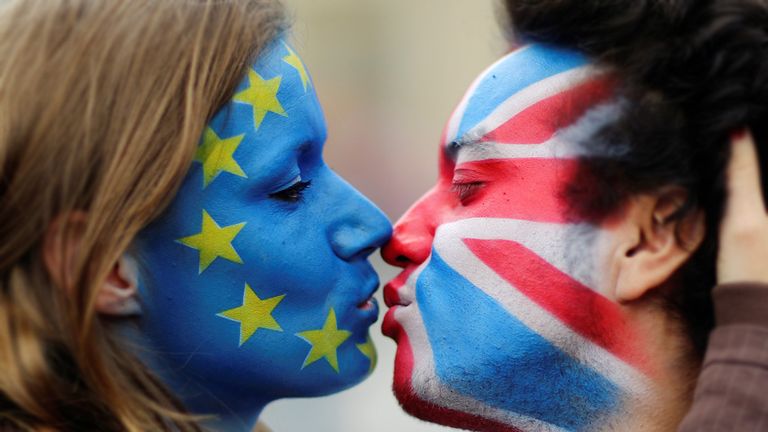Messy start to Brexit is a sign of things to come
There is mistrust and disagreement in the initial stages of Brexit talks - and that's before they even get to the issue of money.
Friday 23 June 2017 21:03, UK
This was supposed to be the easy bit.
Theresa May opened up the negotiations on an upbeat note by promising to protect the rights of 3.5 million EU citizens living in the UK. It seemed like an olive branch held out for the EU to take hold of.
Instead they took one look at the branch and rejected it.
. It was "not sufficient", added Jean-Claude Junker.
The President of the Commission was asked by a reporter if he was any clearer on what the UK wants.
"No," he said before skulking off.
The body language and the flat rejection is a reminder of the uphill struggle Mrs May faces.
Her offer is to keep the free movement door open until an agreed "cut off point" where, presumably, it isn't slammed shut but new controls - whatever they might be - come into force.
We've yet to hear the Government utter the Vote Leave and UKIP mantra of an "Australian-style points system".
Nor will the Prime Minister confirm the number of people she would expect to continue coming to the UK from the EU after this point.
However, she has said that EU citizens who have been in the UK five years can automatically remain.
Those who've been here less time, and those who arrive lawfully during a subsequent grace period, will also be allowed time to regularise their status over five years.
Certainly there are creases to iron out, such as the rights of spouses and dependants. But the EU politicians want something else.
In a proposal set out earlier this month they made clear that Europeans who are living in the UK should maintain their EU rights, in perpetuity, with access to the jurisdiction on the European Court of Justice.
A spokesman for Mr Tusk told me: "EU citizens should have the same rights after Brexit as they have now."
The problem is that under the EU's proposals, EU citizens in the UK could be living within a different legal framework to UK citizens.
There is also an implicit suggestion with the proposal that EU citizens won't be properly protected by British courts, which may aggravate the feelings of uncertainty that EU citizens are feeling.
Mrs May said that EU nationals would have their rights "enshrined in UK law" and "enforced through our highly respected courts".
While it may be a noble desire for the EU to belt and brace the rights of EU citizens who now live in the UK - their demands are perhaps unwarranted - or at least in need of explanation of why the UK courts can't be trusted. After all - they overruled the Government on Article 50.
Mistrust is all part of the messy divorce proceedings and all this before we get on to the subject of money.






